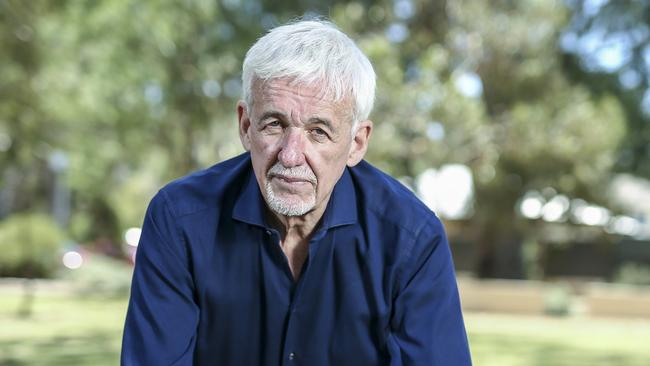Trans ruling ‘could rewrite the law’
A landmark judgment that stripped custody from a mother who wished to give her 12-year-old puberty blockers threatens to undo precedents allowing treatment for children without court intervention, a former Family Court judge says.

A landmark judgment that stripped custody from a mother who wished to give her 12 year old puberty blockers – and criticised a leading gender medicine expert for giving misleading evidence – threatens to undo precedents allowing treatment for children without court intervention, a former Family Court judge says.
Stuart Lindsay, who presided in the Family Court from 2004 to 2014, has warned of the damaging effects of secrecy statutes anonymising key details.
He said it may be in the “best interests” of children and parents that the identities be known.
The comments come days after judge Andrew Strum published a significant judgment rejecting a hospital’s diagnosis that the 12 year old suffered from gender dysphoria, and criticising activist who use legal proceedings to promote a pro-transgender ideology.
Justice Strum’s judgment has made waves among family lawyers, paediatricians and psychologists, after he criticised the approach of hospitals to children questioning their gender, saying the decision to “affirm unreservedly” any child that raises concerns over their gender is “oddly binary”.
He suggested that the Full Court may need to reconsider precedent that allows children questioning their gender identity to access medical treatment without legal intervention, due to emerging research contesting gender-affirming models of care.
The treatment by the courts of children who raise concerns over their gender has been largely shaped by three major court cases.
In Re Jamie in 2013, the Full Court established parents could consent to their children taking puberty blockers without court authorisation, finding the treatment is reversible.
Four years later in Re Kelvin, the Full Court removed the requirement for court authorisation of the provision of cross-sex hormones.
Re Imogen in 2020 clarified that while Re Kelvin relaxed the need for court oversight, authorisation was mandatory if there was a dispute over treatment.
Justice Strum said the Full Court may reconsider the categorisation of puberty blockers as reversible “in the aftermath” of the landmark British Cass Report, which recommended limitations on medication for gender-dysphoric children.
“The Full Court may, in the future, see fit to reconsider the categorisation in Re Jamie of Stage 1 treatment (puberty blockers) as being reversible and not attended by grave risk if a wrong decision is made, such as to fall within the wide ambit of parental responsibility and not require court authorisation,” Justice Strum wrote.
“That is a fact (and a relevant one), not a criticism.”
Mr Lindsay, in an interview with The Australian, said Justice Strum’s judgment paved the way for the Full Court to undo Re Jamie and Re Kelvin.
He said the next judge to preside over a case in which the parents disagreed over the medical pathway of their child would have competing single-court views on the evidence put before them.
“There’s no more of this pretend consensus,” Mr Lindsay said. “The Chief Justice of the Family Court should make it plain that on the first opportunity a case stated should be put up by the judge who’s got one of these before him or her, and a court of five should be convened. A court of five to undo Kelvin.”
Mr Lindsay, a former Liberal Party member, said judges moving forward are going to be “confronted” by conflicting evidence, in part due to the Cass Report challenging aspects included in the Australian Standards of Care and Treatment Guidelines.
He said the court had just been applying a “rubber stamp” to cases that are contested, allowing a child to access treatment, but that “won’t be happening anymore”.
Justice Strum’s judgment was highly critical of one of the nation’s foremost gender medicine experts – anonymised as Associate Professor L – who gave evidence supporting the mother’s case.
He found Associate Professor L and their colleague, Dr N, provided weak evidence to support the mother’s opinion that gender identity was “internal” and “not open to external influence”.
He also said that Dr N’s diagnosis of the child as gender-dysphoric was only made “as the pending trial dates approached”, declaring the timing of the diagnosis was “more than merely coincidental”.
The Australian is unable to publish details identifying the witnesses – including the state in which the matter was heard – due to secrecy laws to protect the identity of the child.
But Mr Lindsay said: “Why shouldn’t, in the interests of children and parents in that state, why shouldn’t that be released?
“This has always been the problem here,” he said.
“You read about one of these cases and there might have been some feature of the treatment or some witness who was called who had one view or another that you, as a legal practitioner, wanted to follow up or as a litigant, and you could never find out who they were.”
He continued: “It’s the sort of order you only usually see in a state security matter.”



